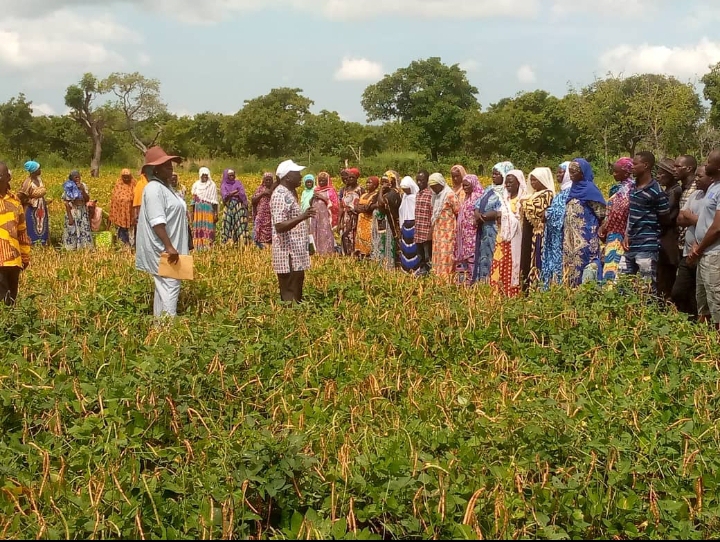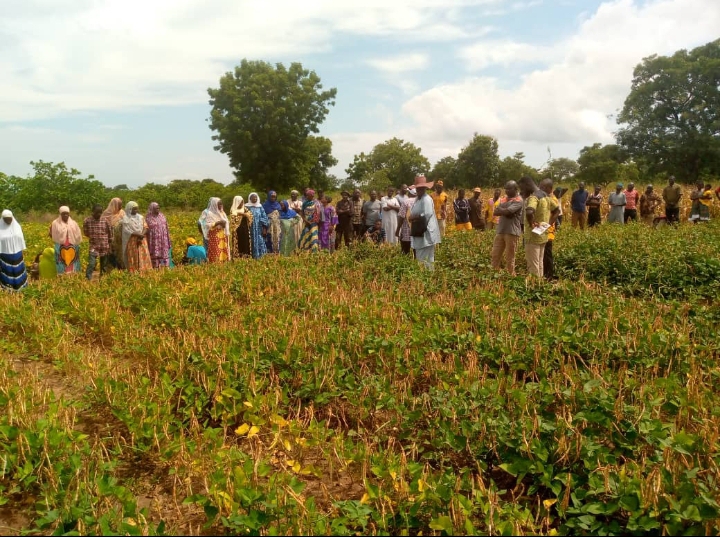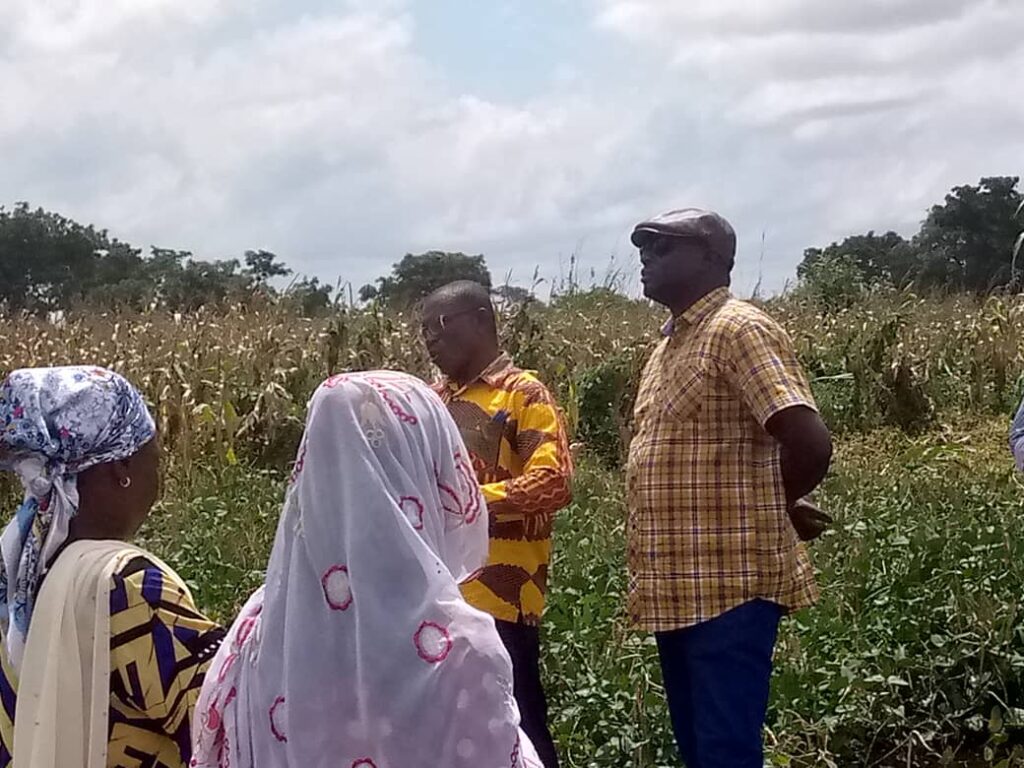 Tanina, Ghana – The Savanna Agricultural Research Institute of the Council for Scientific and Industrial Research (CSIR-SARI), has introduced a new cowpea variety to farmers and Agricultural Extension Agents at Tanina in the Wa West District of the Upper West Region of Ghana.
Tanina, Ghana – The Savanna Agricultural Research Institute of the Council for Scientific and Industrial Research (CSIR-SARI), has introduced a new cowpea variety to farmers and Agricultural Extension Agents at Tanina in the Wa West District of the Upper West Region of Ghana.
The new cowpea called Songotra-T is a port borer resistant (PBR) variety that promises to increase farmers’ yields whilst reducing cost of production in an environmentally sustainable manner.
Other improved popular cow pea varieties were also introduced alongside songotra-T.
This came to light during a recent field visit at Tanina organized by the CSIR-SARI and led by Yahaya Asieku, a research scientist with the Council.
The farmers and their Agricultural Extension Agents were all drawn from three communities in the Wa West District namely; Tanina, Poyentanga and Nahaa to participate in a field visit where the new crop variety was introduced to them.
 Mr. Asieku explained that the introduction of songotra-T alongside other popular improved varieties to farmers in the Wa West District was to ensure that farmers increase yields in order to improve food security and household incomes.
Mr. Asieku explained that the introduction of songotra-T alongside other popular improved varieties to farmers in the Wa West District was to ensure that farmers increase yields in order to improve food security and household incomes.
He said, the new variety was transgenic- genes modified purported to scare away the most troublesome pest known as maruca vitrata, which destroyed cowpea resulting in about 80% yield loss.
He said songotra-T could give farmers yield of up to 2.5 tonnes per hectare whilst the conventional cowpea could only do 2.0 tonnes per hectare.
“Songotra-T has a maximum of 65 days maturity and can be sprayed for four times unlike the conventional cowpea that is sprayed for 8 times. There are other four high yielding varieties that are in the pipeline to be developed to enhance farmers preference”, he added.
Mr. Asieku further explained that, just like any other crop, the produce from the new variety could be replanted the following season, however farmers should desist from doing so and buy certified seed each time they were to cultivate the crop.
He emphasized the need for farmers to adhere to good agronomic practices to sustainably increase yields because agriculture was big a business.
 An Agriculture Economist with the CSIR- SARI, Dr. Yahaya Iddrisu, told the farmers that the PBR cowpea and the conventional ones had the same features in terms of taste, time of cooking and other parameters.
An Agriculture Economist with the CSIR- SARI, Dr. Yahaya Iddrisu, told the farmers that the PBR cowpea and the conventional ones had the same features in terms of taste, time of cooking and other parameters.
However, the PBR cowpea he explained, had a reduced production cost per unit compared to the other ones.
“With the use of pesticides, the PBR requires less sprays and the farmer can get the desired yield that will increase food security, household incomes, environmental safety and good health”, he pointed out.
Mr. Ibrahim Hashim, a biometrician, advised the farmers to use organic manure, which is cheaper to obtain, to enhance their soil fertility levels and not depend solely on the inorganic fertilizers, which are very costly. He also advised them to practice crop rotation as a soil fertility enhancement strategy and to also reduce pest and disease build-up.
A cowpea farmer, Alhaji Ibrahim Seidu, expressed the excitement of farmers about the new cowpea they would soon be cropping. He however, lamented about the yield losses he experienced each year due to pest infestation and asked his colleague farmers to embrace the new cowpea and use it to make farming as a business.
Meanwhile, the development of the new songotra-T cow pea was financed by the African Agricultural Technology Foundation (AATF).
By SavannahNewsOnline.Com/Abdul-Nayaro Froko
 Savannah News Online Reporting Only What Matters Most
Savannah News Online Reporting Only What Matters Most



